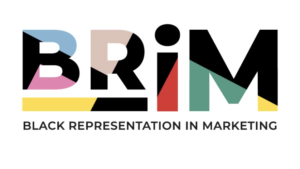Already a member? Sign in below

A 2018 report by Lloyds Banking Group demonstrates the fact we are making progress on the former issue, with Black representation in advertising increasing from 5.7% in 2015 to 13.3% in 2018.
Compared to the 3.3% Black population, this highlights the significant progress that has been made and demonstrates that advertising can be a powerful force for social good.
A recent MetrixLab survey commissioned by BRiM also finds that 7 in 10 people working in marketing understand the need for fairer Black representation in marketing.
Equally encouragingly, more than half (58%) have made decisions they believe have increased Black representation in marketing in the past 12 months.
And yet that same Lloyds report finds 32% of Black people still felt underrepresented in advertising and 34% felt they were inaccurately portrayed. This compares to just 9% of white people.
42% of Black people also felt not enough was done to recognise their culture and 29% felt they were negatively stereotyped in advertising.
In the first instance, 7 in 10 recognising the need for fairer Black representation in marketing isn’t good enough. We should be aiming for 100% understanding.
Although it’s encouraging to see that more than half believe they can increase fairer representation through the decisions they make and the actions they take, that still leaves 42% of the industry who haven’t yet realised that they can make a positive difference too.
And we start to see why there’s a problem when we dig further into the research, with 24% saying they rarely or never ensure their team promotes a fair hiring process that is attractive to a diverse set of individuals including members of the Black community.
When reviewing talent to hire on a project, 31% say they rarely or never commit to not hiring someone unless they have reviewed a response to a brief from a representative sample of Black people.
And 23% say they rarely or never ensure that the external partners they work with span across a diverse mix of talents from different backgrounds, including Black talent.
With a quarter (25%) of those responding saying they rarely or never take steps to ensure there is Black representation in key roles across the production process, it’s little wonder so many Black people feel inaccurately portrayed and negatively stereotyped in advertising.
As such, it’s time we came together as industry to tackle this problem.
Building on the progress we’ve made, but starting to address some of the real systemic issues, particularly when it comes to off-screen talent.
To tackle this, the first phase of the BRIM initiative sees the launch of a framework featuring principles, commitments, and easy to access and use tools to help each of us implement real change.
The leaders and ideators behind BRiM have committed to making sure BRiM is a long term project that drives measurable change.
Following this initial survey, the next phase of the research will take place in the summer, following the advertising campaign. It will focus on establishing whether more marketers understand the difference they can make in their roles having joined the BRiM community and accessed the framework.
In the Autumn, we’re planning a third wave of research which will aim to establish the effectiveness of the framework, surveying those who ‘joined the BRIM community’ to assess whether those marketers who downloaded the framework have moved from good intentions to meaningful actions: have they done anything differently as a result to bring about fairer Black representation in marketing?
Within this latter phase of the research, we also want to understand what actions they have taken based on the principles of the framework. Part of the purpose of this will be to hold people accountable to delivering against the framework.
We then plan to publish anonymised data from the survey on an annual basis to demonstrate the progress the industry has made and to rally people to do more.
We’re also working on the next phase of BRiM beyond the framework and will ensure we track the effectiveness of any subsequent activity.
Ultimately, the real power of BRiM will be in all the individual actions taken. And understanding and tracking those actions through ongoing measurement will be an integral part of our industry’s collective journey towards real change.
Already a member? Sign in below
If your company is already a member, register your email address now to be able to access our exclusive member-only content.
If your company would like to become a member, please visit our Front Foot page for more details.
Enter your email address to receive a link to reset your password
Your password needs to be at least seven characters. Mixing upper and lower case, numbers and symbols like ! " ? $ % ^ & ) will make it stronger.
If your company is already a member, register your account now to be able to access our exclusive member-only content.